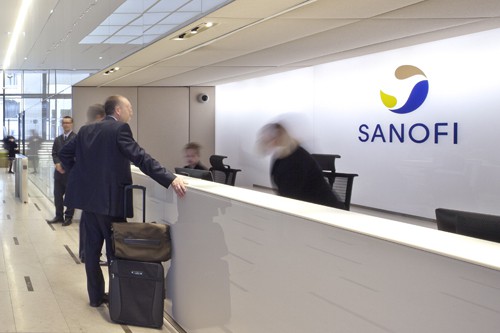
Sanofi has suffered a brace of pipeline setbacks, dropping lung cancer drug iniparib and anticoagulant otamixaban from development after negative phase III trials.
Both compounds were highlighted at Sanofi’s R&D update earlier this year among a clutch of late-stage products intended to fuel growth in the coming years.
The ECLIPSE trial of PARP inhibitor iniparib in patients with newly-diagnosed non-small cell lung cancer (NSCLC) found that adding the drug to chemotherapy had no effect on overall survival, the primary outcome measure.
Results of a phase II trial of the drug in platinum-resistant ovarian cancer has also turned out negative, said Sanofi. Given that iniparib had already failed a phase III trial in breast cancer in 2011 the pharma company has taken the decision to drop the drug from development entirely, taking a $285m charge in its interim accounts.
PARP inhibitors like iniparib are designed to fight cancer by interrupting the process of DNA repair in cells, but iniparib’s demise does not mean that the class is dead. For example, AstraZeneca recently announced it is taking its own PARP inhibitor candidate olaparib into a phase III trial in ovarian cancer, despite an earlier negative study. Patients will be selected for treatment using a companion diagnostic developed by Myriad Genetics.
At the American Society of Clinical Oncology (ASCO) meeting in Chicago this week data is also being presented on several earlier-stage PARP inhibitors, including Tesaro’s niraparib, BioMarin’s BMN-673 and Clovis Oncology’s rucaparib.
Otamixaban demise
Meanwhile, Sanofi’s decision to drop intravenous Factor Xa inhibitor otamixaban comes on the back of disappointing top-line results from the TAO study.
In this study, that the drug performed no better than current therapy with heparin and Merck & Co’s Integrilin (eptifibatide) in reducing death or new heart attacks in patients with non-ST elevation acute coronary syndrome (NSTE-ACS).
Otamixaban achieved mixed results in an earlier phase II trial in NSTE-ACS, with a trend towards fewer cardiovascular events. At the time, however, clinicians questioned whether another intravenous (IV) agent was needed in this setting, given the availability of alternative IV treatments such as enoxaparin and bivalirudin.
Iniparib had been tipped as a potential blockbuster when Sanofi acquired the drug along with BiPar Sciences for $500m in 2009, but the stream of negative trial results had whittled forecasts down to around $300m at peak.
Meanwhile, otamixaban had also promised great things as a product that would meet the need for a rapid-acting anticoagulant with a short duration of action that could also be reversed pharmacologically. After the results of the SEPIA trial peak sales expectations were scaled back to around $250m a year.




